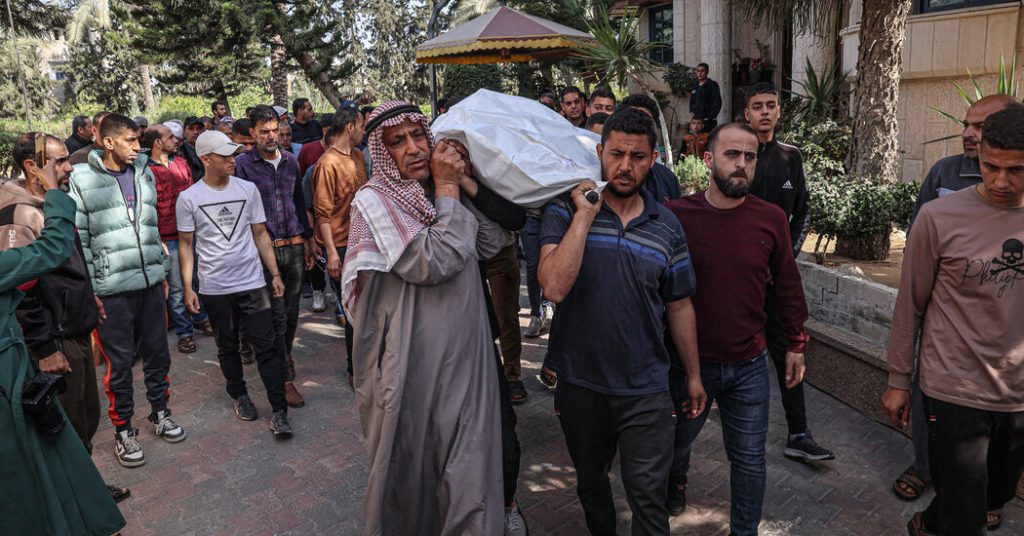President Biden expressed anger and sorrow over the killing of seven humanitarian aid workers in a strike by Israeli forces, prompting Israel’s top military commander, Lt. Gen. Herzi Halevi, to acknowledge that a mistake had been made. Halevi accepted responsibility for the deaths of the aid workers, admitting that it was a result of misidentification during a complex situation in the midst of the ongoing conflict in Gaza. This marked a rare admission of fault by Israel, which typically defends its military actions as necessary to combat Hamas. The deaths of the aid workers, who were with the charity World Central Kitchen, raised concerns about the protection of civilians during the conflict.
In a strongly worded statement, President Biden criticized Israel for failing to do enough to protect civilians, pointing out that the deaths of aid workers were not an isolated incident. He emphasized that the conflict in Gaza had seen a high number of aid workers killed, drawing attention to the severity of the situation. As international allies, including the UK, demanded explanations from Israel regarding the attack, tensions between the US and Israel escalated. The deaths of the World Central Kitchen workers, who were traveling in clearly marked cars, triggered condemnation and prompted aid agencies to reassess their operations in Gaza.
The bodies of the six foreign aid workers were transported to Egypt and were to be repatriated to their home countries. The killings sparked outrage globally and further fueled accusations against Israel for indiscriminate bombing and disregard for civilian casualties. General Halevi announced plans for an independent investigation into the killings, pledging to share the findings with World Central Kitchen. He reiterated that Israel’s conflict was with Hamas, not the people of Gaza, expressing regret for the harm caused to the aid workers and their families.
General Halevi’s apology and Prime Minister Netanyahu’s expression of deep regret came swiftly after the strike, indicating a shift in Israel’s response compared to previous incidents. During previous airstrikes in Gaza, Israel took several days to acknowledge civilian casualties, raising concerns about transparency and accountability. The killing of the aid workers underscored the challenges faced by humanitarian organizations operating in conflict zones and highlighted the need for greater protection of civilians during wartime.
The suspension of World Central Kitchen’s operations in Gaza following the incident reflected the broader impact on humanitarian aid efforts in the region. The deaths of the aid workers from countries supportive of Israel increased international scrutiny of its conduct in the conflict, adding to the rising criticism of its military actions. As the conflict in Gaza continued to escalate, the tragic incident involving the World Central Kitchen workers served as a stark reminder of the human cost of war and the importance of upholding humanitarian principles.
President Biden’s condemnation of the attack on the aid workers and Israel’s acceptance of responsibility for the mistake signaled a growing impatience with the conduct of the war and strained relations between the US and Israel. The ongoing conflict in Gaza, with a high death toll according to Gazan health authorities, underscored the urgent need for a resolution to the violence and a renewed focus on protecting civilians and aid workers caught in the crossfire. The international community’s response to the incident highlighted the interconnectedness of global humanitarian efforts and the necessity of upholding humanitarian law even in the midst of conflict.


